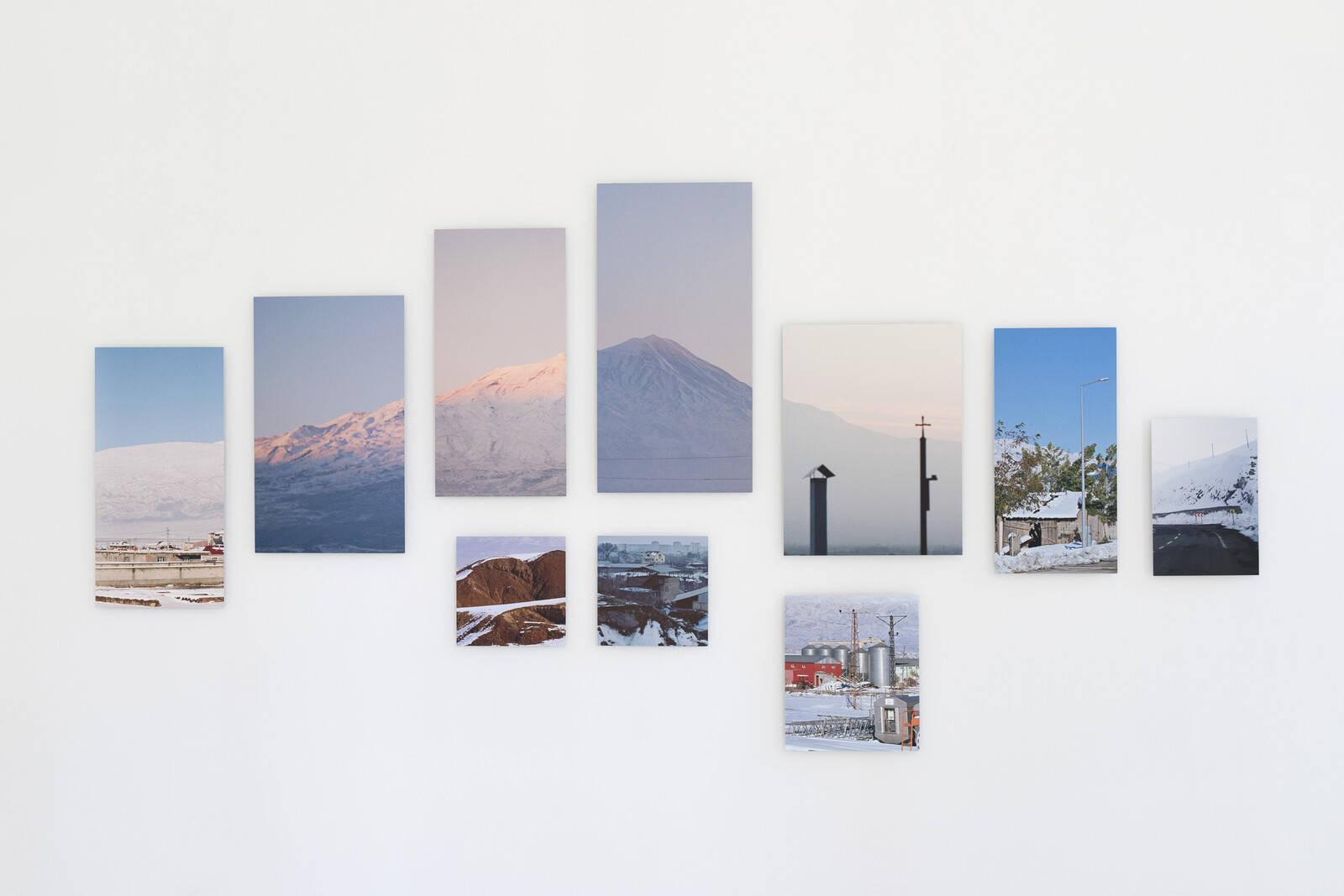February 26–April 30, 2022
1st floor, entrance via escalator
Karl-Liebknecht-Strasse 11/13
10178 Berlin
Germany
presse@ngbk.de
Artists
Mouna Assali, Mehtap Baydu, Christina Dimitriadis, Ece Gökalp, Edona Kryeziu, Silvina Der-Meguerditchian, Eleni Mouzourou, Ceren Oykut, Viron Erol Vert and FUNKE collective (Selda Asal, Emre Birişmen, Melih Sarıgöl, Seçil Yersel)
Events
Panel discussion: April 13, 7–9pm, moderated by Şirin Erensoy & Erden Kosova
Opening: February 25, 2–8pm, hourly guided tours with the project group (ger/eng/tur)
Memories of Displacement: March 15, 7–9pm, film screenings followed by a talk with Adnan Softić
Deep Landscape: March 22, 7–9pm, film screenings followed by a talk with Tekla Aslanishvili
A.G.A. Trio (concert): April 1, 7–11pm, A.G.A. Trio, namely Deniz Mahir Kartal, Mikail Yakut, Arsen Petrosyan from Turkey, Georgia, Armenia. nGbK exhibition space + livestream
Usually referring to a devastating storm, the term twister is applied figuratively here to a recent upswing in nationalistic aggression and authoritarian tendencies on and beyond Europe’s eastern margins. One side effect of this political regression is the increasingly repressive treatment of domestic critics, leading in turn to an exodus of dissidents to major cities in Western Europe–including Berlin.
One of the themes expressed in the works selected for the exhibition is the arbitrary character of political representations of geography and nature. Christina Dimitriadis (b. 1967, Thessaloniki/Greece) deals with the connotations of the Aegean Sea in her photographic work. The title of her project Island Hoping is a play on words in which a consonant is removed from hopping to become hoping. This title contradicts the common image and narrative of the Aegean as an ideal destination and alludes to the fact that it is a mostly unreachable and deadly destination for migrants trying to reach the European continent. With a similar view of the irrelevance of political borders in the face of a holistic nature, Ece Gökalp’s (b. 1988, İstanbul/Turkey) photographic essay A Mountain As Many deals with the mythical Mount Ararat. With long-distance shots of the mountain from three adjacent countries (Turkey, Armenia, and Iran) Gökalp’s extensive work maps the cultural differences, commonalities and continuities of the various narrative viewpoints. The official designation of “Latzia,” an endemic oak tree of Cyprus, as the national tree of the island sets a starting point for Eleni Mouzourou’s (b. 1983, Lefkosia/Cyprus) research-based project exploring and problematising the construction of the concept of the “native.” Searching for the “National Plant” questions the ways in which nature is being appropriated by politics of cultural and national identity.
Twisters, in the sense of political whirlwinds and the destruction they leave behind, are another major theme of the show. In Silvina Der-Meguerditchian’s (b. 1967, Buenos Aires/Argentina) installation, long strands of red wool emerging from dark rocks and spilling across the floor of the exhibition space recall the never-ending bloodshed resulting from conflicts based on ethnic and religious hostilities and the destruction of cultural heritage. The FUNKE Collective (Selda Asal, Emre Birişmen, Melih Sarıgöl and Seçil Yersel) concentrates on the “uncontrollability” of the dynamics of current politics. The ‘ventilator table placed in a fictional control room will refer to the ongoing geopolitical conflicts and present a fragmentary and fluid counter-narrative. Edona Kryeziu’s (b. 1994, Saarlouis/Germany) video work Greetings from Elsewhere takes a diasporic approach, addressing physical distance and the ongoing mental and emotional attachment to home. The film features video recordings made and exchanged by the artist’s extended family members living in Germany and Kosovo during the trouble-filled years of major political tensions and the war in the 1990s. Mehtap Baydu’s (b. 1972, Bingöl/Turkey) sculptural work Suitcase Bread hints at the economic conditions that forces people to leave their home countries, while Viron Erol Vert’s (b. 1975, Varel/Germany) wall installation makes us of the folding travel mirrors to visualise the experience of displacement. Map of Neiter, the animation film by Ceren Oykut (b. 1978, İstanbul/Turkey), based on excerpts from her earlier drawing practice, mirrors the ambiguities in the artist’s life, as someone from Istanbul’s creative classes who ended up living in a foreign county, unsure of being allowed to stay but at the same time who does not identify with any of the official categories or popular definitions that is attached to the people who are displaced. Mouna Assali’s (b. 1988, Damascus/Syria) film Mnemonic traces the physiological, emotional, social and cognitive impacts of the ongoing civil conflict in Syria, particularly the ones that have been inflicted on people by the audial violence of the warfare.
Many of the works offer poetic comments on nationalistic shortsightedness, displacement, and being in exile, but the problems addressed call for a more in-depth engagement. This is provided by the event program. In this way, Twister also sees itself as an act of intervention through art: an attempt to highlight controversial issues of our time, and to bring about change.
nGbK project group: Berk Asal, Emre Birişmen, Erden Kosova, Melih Sarıgöl, Selda Asal


